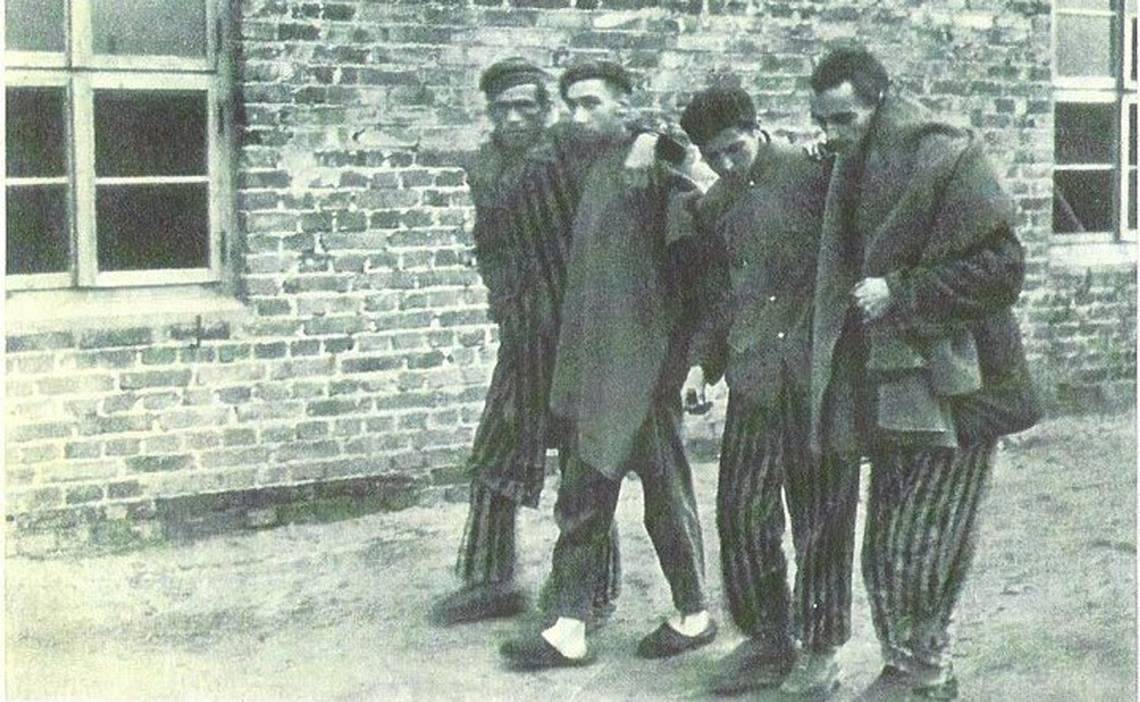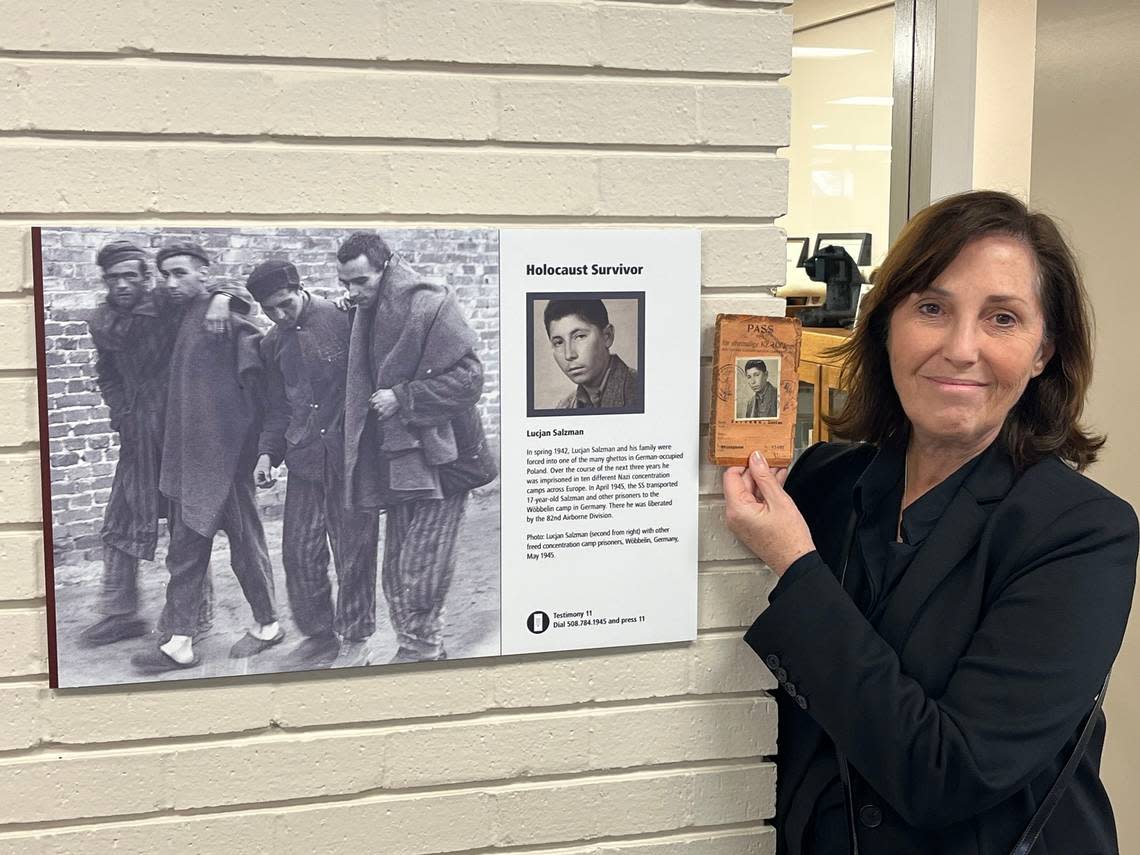A woman finds her father’s Holocaust story in the Fort Worth History Center’s exhibit
Anna Salton Eisen traveled from her Westlake home with her son Aaron to the Fort Worth History Center to view the “American Witnesses” exhibit.
She went to each curated panel featuring images of survivors of the Holocaust. At the last one she saw a young man who had been liberated from his 10th camp, the Wöbbelin concentration camp in Germany.
It was her father, George Salton.

She learned her father was in the display when a friend shared a photograph of him from the complete exhibit at the United States Holocaust Memorial Museum in Washington.
“It helps bring it home that yes, this is a picture on a wall but here’s a real person and there’s a story, and here’s his daughter, and she’s a part of our community,” Eisen said, recalling the day she saw the image in Fort Worth on Feb. 9. “So that was really a great connection I made with people there that day, kind of just expresses the whole power of this kind of redemptive storytelling.”
The “American Witnesses” exhibit concludes Saturday at the Fort Worth History Center, 501 E. Bolt St. The display is a collaborative effort with the Holocaust Memorial Museum.
The exhibit highlights the reactions and experiences of men and women in the U.S. military who saw firsthand evidence of Nazi atrocities in April 1945. It includes 18 oral, written, and visual testimonies from service members and the testimonies of Holocaust survivors liberated by the U.S. armed forces.

Linda Barrett, Fort Worth History Center manager and archivist, discovered the exhibit was available, and saw it as an opportunity to inform people in Fort Worth.
“The benefit is that people need to be educated about this kind of thing,” Barrett said. “Because I think that it helps them to better understand what happened during World War II and apply that to current events.”
Salton was born in Poland as Lucjan Salzman and was liberated by the 82nd Airborne Division. He stayed in various displaced persons camps in Germany for two years after the war. In 1948, he immigrated to the United States where he served in the Army, received a bachelor’s and master’s degree from Syracuse University, and worked at the Pentagon.
The picture of Salton in the exhibit was taken by the 82nd Airborne Division when he was at Wöbbelin. The image is included in a book called “Those Devils In Baggy Pants.” Next to it was a smaller picture of a pass Salton received from the British as identification for travel and those living in displaced persons camps.
After his retirement, he traveled and spoke about his Holocaust experiences at universities, conferences and churches. He died in 2016.
Eisen continues to spread her father’s story. She has written two books: “The 23rd Psalm: A Holocaust Memoir, ” about her father’s experience in the Holocaust, and “Pillar of Salt: A Daughter’s Life in the Shadow of the Holocaust,” her own memoir co-authored with her son.
She also produced a documentary film, “In My Father’s Words,” and is a founding member of Congregation Beth Israel in Colleyville.
“We need to understand and learn from our history, that’s how we learn and grow as humans, as government and as a civilization,” Eisen said. “And so when we see that the history is not preserved, is not studied, and it falls into the hands, especially now during this age of social media, where people will distort and deny it.”
